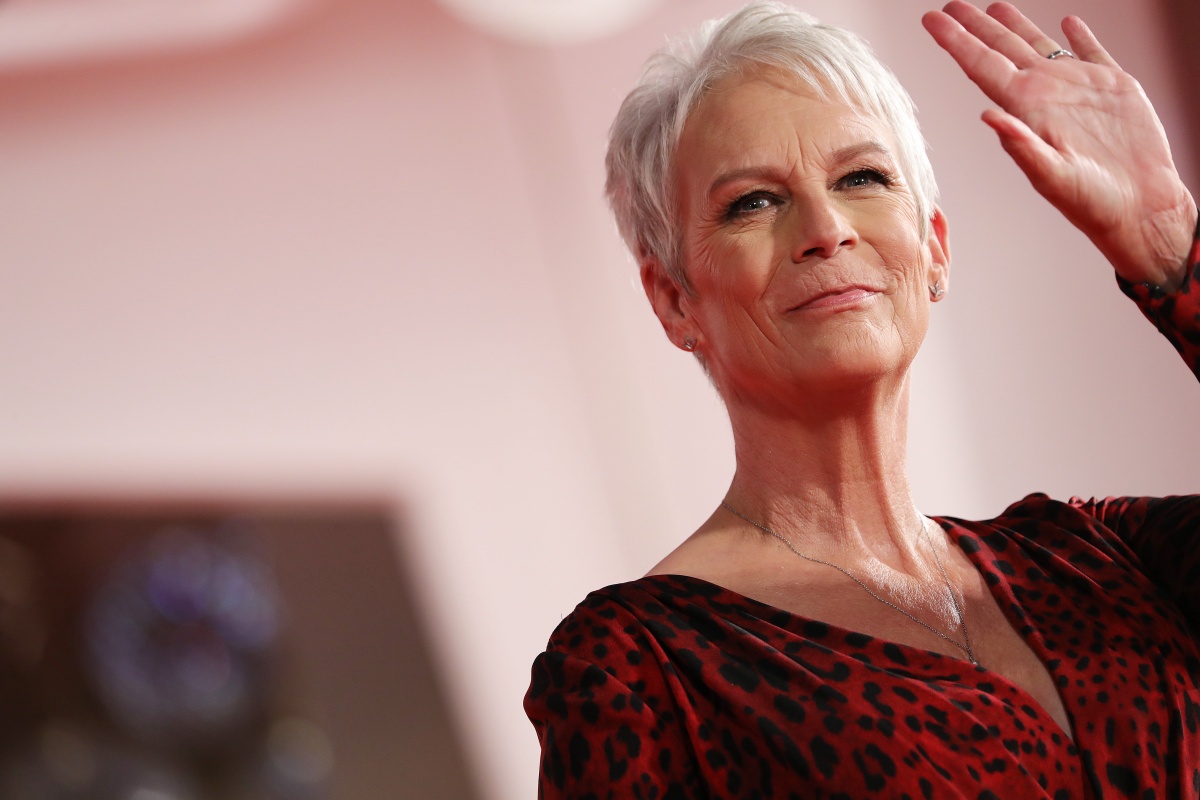
Jamie Lee Curtis had an interview with Fast Company where she talked about plastic surgery and the impact that social media has on beauty.
The interviewer asked Curtis about the actress’s own experience with plastic surgery, since Curtis is on the record about having gotten some. Curtis was also asked if she thinks Hollywood beauty standards are changing.
“I tried plastic surgery and it didn’t work. It got me addicted to Vicodin. I’m 22 years sober now,” Curtis said. “The current trend of fillers and procedures, and this obsession with filtering, and the things that we do to adjust our appearance on Zoom are wiping out generations of beauty. Once you mess with your face, you can’t get it back.”
She continued, “I use social media to sell things and amplify things I care about. Period. The rest is cancer. I never read one comment. It’s also very dangerous. It’s like giving a chainsaw to a toddler. We just don’t know the longitudinal effect, mentally, spiritually and physically, on a generation of young people who are in agony because of social media, because of the comparisons to others. All of us who are old enough know that it’s all a lie. It’s a real danger to young people.”
Social media has become a really toxic lens through which many of us see ourselves. One of the many bad news items for Facebook in recent weeks has been that the company knows Instagram (which it owns) is bad for body image and mental health, especially for teens, and has done nothing about it. However, Instagram isn’t alone in this.
Many apps have filters already built in, and as a Black woman, I have found that many of them lighten my skin, which feed the colorist mentality that to be more beautiful, I need to be lighter skinned. Not only that, but the ability for anyone to erase acne, discoloration, stretch marks, and everything else with the touch of a finger has given us a more homogenous idea of what beauty looks like.
Back in 2019, the BBC reported: “A systematic review of 20 papers published in 2016 found that photo-based activities, like scrolling through Instagram or posting pictures of yourself, were a particular problem when it came to negative thoughts about your body.”
Additionally:
“People are comparing their appearance to people in Instagram images, or whatever platform they’re on, and they often judge themselves to be worse off,” says Jasmine Fardouly, a postdoctoral researcher at Macquarie University in Sydney, Australia.
In a survey of 227 female university students, women reported that they tend to compare their own appearance negatively with their peer group and with celebrities, but not with family members, while browsing Facebook. The comparison group that had the strongest link to body image concerns was distant peers, or acquaintances.
I don’t think surgery is inherently bad, but how we choose to invest in beauty says something about our values, especially when we ask ourselves what faces we have decided are perfect and which ones we are airbrushing out.
(via ET Canada, image: Vittorio Zunino Celotto/Getty Images)
Want more stories like this? Become a subscriber and support the site!
—The Mary Sue has a strict comment policy that forbids, but is not limited to, personal insults toward anyone, hate speech, and trolling.—
Have a tip we should know? [email protected]
